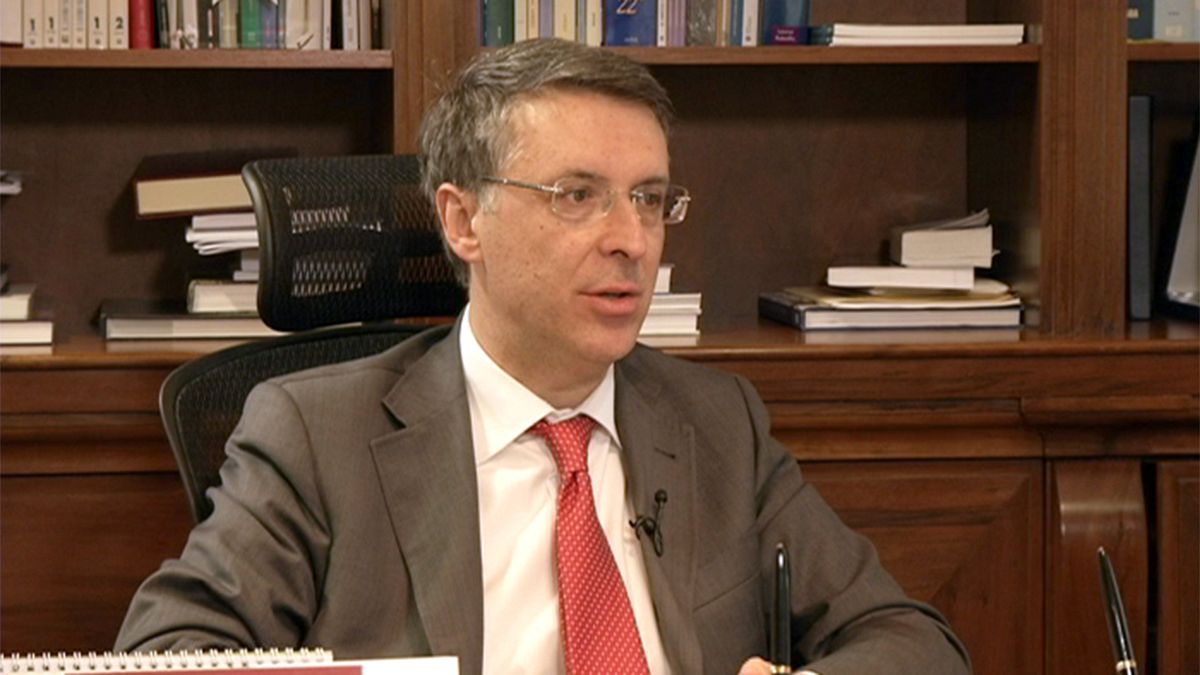In 1991 a wave of migration from Albania into Italy started. The Italian government continues to describe it as an emergency situation even when it
In 1991 a wave of migration from Albania into Italy started. The Italian government continues to describe it as an emergency situation even when it cannot no longer be labelled as such. Activities intended to help migrants are under threat from the Mafia and corruption. Structural policies are the only way to ensure migrants receive the help they need.
Sabrina Pisu discussed this with Raffaele Cantone, President of the Italian Anti-Corruption Authority.
*(The video is in Italian language)
Sabrina Pisu, euronews
“In June 2015, at your request, Maria Guia Federico, the prefect of Catania, put the Mineo migrant reception centre under the administration of an external commissioner. The so-called Mafia Capital investigation, led by the public prosecutor’s offices of Rome and Catania, uncovered the activities of the cooperatives that won a 100-million euro contract to run the Mineo centre. The investigation unearthed an efficient system producing electoral support as well as money. At the time, you immediately declared the bid invalid. Why?”
Raffaele Cantone, President of the Italian Anti-Corruption Authority
“We had received a petition to investigate this bid and subsequently verified that the invitation to tender presented custom-tailored requirements in order to exclude rival bidders. As a matter of fact only one firm participated, offering a one percent reduction. The requirements listed in the invitation to tender were particularly restrictive with regard to the distance from the catering location or the qualifications of cultural-linguistic mediators. Basically, all the requirements were too restrictive with respect to the regulations outlined in the contract.
“The Mafia Capital investigation subsequently proved what we had partly discovered: those requirements were custom-tailored. Corruption was at the basis of this bid, which turned into a rich source of income for the winning contractor. The contract was worth 100 million euros, but the turnover was definitely higher as there were other bids linked to all the activities connected to the management of the administrative structures.”
euronews
“You said that Campania is one of the regions involved in the corruption system and is under investigation by the authorities. The emergency reception centres run by cooperatives are likely to be part of the corruption chain. Why?”
Raffaele Cantone
“Those centres were often improperly built. They had to choose locations in certain provinces that could function as reception centres for the migrants coming to Italy – and in most the cases those buildings did not match the standard requirements for that kind of use. Often, they could only provide a roof and nothing else to our unfortunate brothers and sisters.
“Although it could have been an acceptable way to handle an emergency situation, in Campania and other places it turned into a money-making system for people who were not necessarily qualified to run the centres.
“We are still investigating centres, cooperatives and charity groups that ran some centres in Campania, accommodating migrants in crumbling buildings and providing (or pretending to provide) reduced services to them. For instance, the investigation led by the Naples prosecutor’s office shed light on the illegal activities of a centre manager who embezzled the daily pocket money allowance that he was supposed to pay directly to the migrants. Other investigations brought up similar activity in other centres.
euronews
“Criminals have always profited from emergency policies. Have the investigations proved that organised crime infiltrated the migrant-reception system?”
Raffaele Cantone
“Upon investigation of the system, one comes to suspect the infiltration of organised crime. But it has not been proved so far, except in the Rome case.
“In my opinion, it is hard to believe that in regions with a large presence of organised crime, organisations such as Camorra, Mafia, ‘ndrangheta and Sacra Corona Unita do not have a hand in all this. The real issue here is the management — with emergency methods — of the flood of arrivals, even though the emergency has passed. This kind of approach produced, and continues to produce, a leniency in respect for the rules.”


